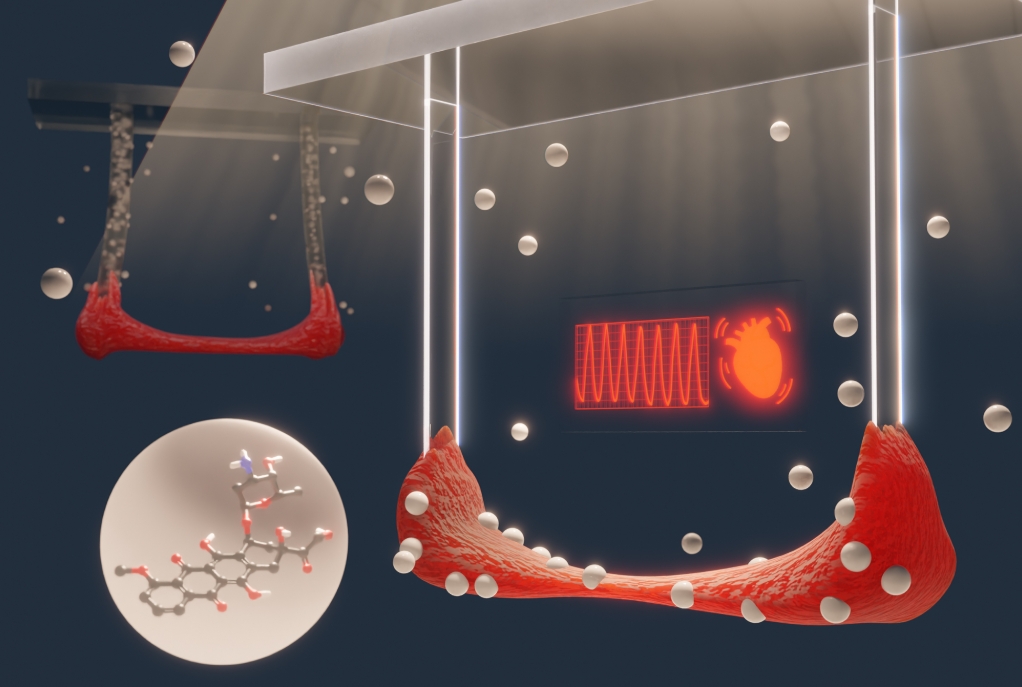
Many drugs fail in clinical trials due to discrepancies between pre-clinical and clinical outcome, often stemming from the inability of animal models to replicate human biological responses accurately. Instead, to overcome this challenge, EHTs derived from human induced pluripotent stem cell cardiomyocytes (hiPSC-CMs) have been increasingly utilised to model cardiac diseases and test candidate drugs.
However, while polydimethylsiloxane (PDMS) is favoured for its flexibility and biocompatibility, its high absorptive property significantly distorts pharmacodynamic assessments. To address this, the researchers developed a PS-based EHT device with dramatically lower compound absorption. Although PS is inherently stiffer than PDMS, this limitation was overcome by engineering flexible, thin film-based pillars with optimised tip geometry that accommodate contractile forces and enhance tissue retention during fabrication, resulting in a high overall success rate for generating functional EHTs.
This innovative PS-based EHT platform—integrated with an automated analysis programme that precisely quantifies drug effects in vitro—represents a significant advance in cardiac drug testing. By overcoming material-related challenges, the researchers have developed a reliable method for predicting human heart tissue responses while reducing reliance on traditional animal models, ultimately accelerating the development of safer, more effective therapies.




